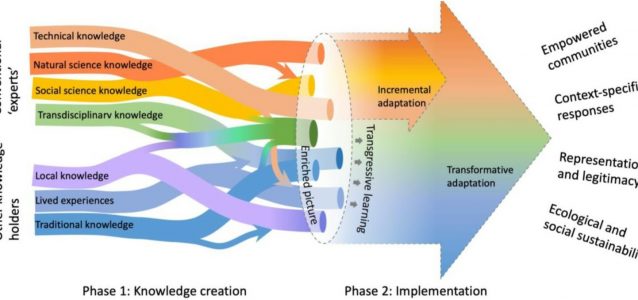Supporting transformative climate adaptation: community-level capacity building and knowledge co-creation in South Africa.
Calls for transformative adaptation to climate change require attention to the type of capacity building that can support it. Community-level capacity building can help to ensure ownership and legitimacy of longer-term interventions. Given that marginalized communities are highly vulnerable to climate risk, it is important to build their capacity to adapt locally and to integrate their perspectives into higher-level adaptation measures. Current adaptation policy does not pay sufficient attention to this. Using a Cape Town-based project on water governance in low-income urban settlements, this paper explores how a transdisciplinary research project supported capacity building. Our findings suggest that knowledge co-creation at the community level is central to the capacity building that is needed in order to inform transformative adaptation. The collaborative methodology used is also important; we illustrate how a transdisciplinary approach can contribute to transformative adaptation where knowledge is co-produced to empower community-level actors and organizations to assert their perspectives with greater confidence and legitimacy. We argue that if capacity building processes shift from the top-down transferal of existing knowledge to the co-creation of contextual understandings, they have the potential to deliver more transformative adaptation. By considering diverse sources of knowledge and knowledge systems, capacity building can start to confront inequalities and shift dominant power dynamics. Adaptation policy could provide more guidance and support for community-level transdisciplinary processes that can enable this type of transformative adaptation.
